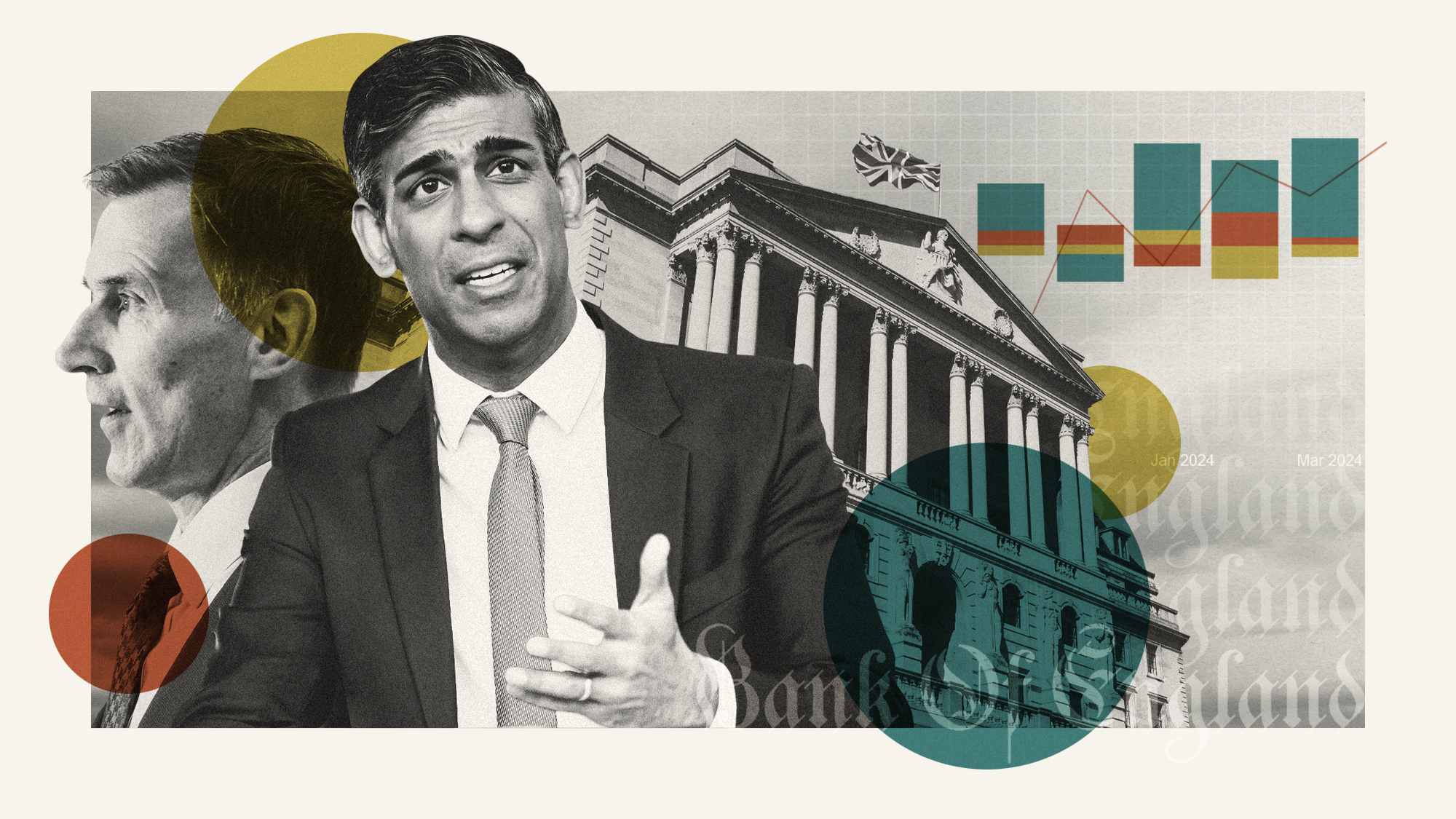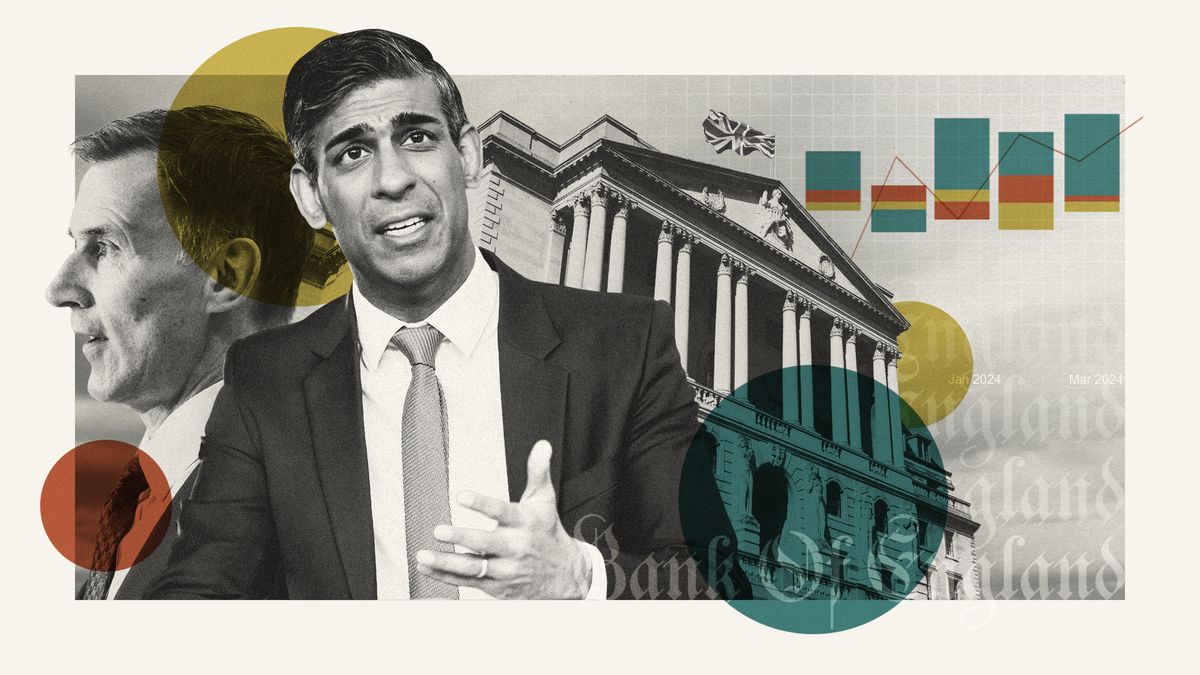“The economy is returning to full health for the first time since the pandemic”, declared the Chancellor Jeremy Hunt last week as figures revealed Britain had recorded its fastest rate of economic growth in two years.
According to the Office for National Statistics (ONS), the UK economy grew by 0.6% in the first quarter of 2024, outstripping forecasts by the Bank of England and representing the strongest growth for any G7 country, with the eurozone lagging behind on 0.3% and the US on 0.4%.
The UK has emerged from the mild recession it entered at the end of 2023. But the triumphant noises coming out of government have been met with “a mixture of resignation, laughter and annoyance” from the public who are still feeling the pinch from the cost-of-living crisis and sky-high inflation, said BBC economics editor Faisal Islam.
Subscribe to The Week
Escape your echo chamber. Get the facts behind the news, plus analysis from multiple perspectives.
SUBSCRIBE & SAVE
Sign up for The Week’s Free Newsletters
From our morning news briefing to a weekly Good News Newsletter, get the best of The Week delivered directly to your inbox.
From our morning news briefing to a weekly Good News Newsletter, get the best of The Week delivered directly to your inbox.
Statisticians are not known for hyperbole but Grant Fitzner, chief economist at the ONS, used the latest growth figures to paraphrase the former Australian prime minister Paul Keating and claim the economy is “going gangbusters”.
In one sense he is right, said Ed Conway, economics and data editor at Sky News. An economic growth rate of 0.6% is near enough to what economists used to call “trend growth”, “in other words, it’s the kind of number which signifies the economy growing at more or less ‘normal’ rates.
“And normality is precisely the thing the government wants us to believe we’ve returned to.”
Adding to the positive growth figures, inflation is expected to hit the Bank of England’s target of 2% this month. Interest rates could start to fall as soon as next month, after the governor Andrew Bailey claimed “we’re now getting back to more normal times”. UK wage growth has also remained strong in the first quarter of the year – rising by 2.4% – even as the employment rate continues to rise.
All this suggests Britain has “turned a corner” agreed Reaction, “but there is an important caveat”. When measured per head, GDP is still 0.7% lower than a year ago. This “arguably more accurate measure of the country’s economic well-being – which takes account of the UK’s considerable population growth – helps to explain why many Brits won’t be feeling much better off despite this seemingly sunny economic news”.
It is also a question of context, said Conway, because while this latest set of GDP figures is “undoubtedly positive, the numbers that came before are undoubtedly grim”.
GDP per head is considerably lower, in real terms, than it was in 2022 before Liz Truss’s disastrous mini-budget, and for that matter before the pandemic hit and the country last went to the polls in 2019.
What next?
Rishi Sunak’s “hopes of pulling off the greatest comeback in British political history rely on him being able to convince voters that the economy is turning a corner and that Britain’s economic prospects are improving” said The Times. “Labour’s economic narrative relies on the polar opposite – hammering home the idea that the Tories have trashed the economy over the past 14 years and left them significantly worse off.”
The shadow chancellor Rachel Reeves appeared to anticipate this changing economic narrative in a speech last week is which she claimed the Tories were “gaslighting” the British people by claiming things were getting better when many families were still struggling.
“They do not speak to the economic reality,” she said. “All they hear is a government that is deluded and out of touch with realities on the ground.”
Recent polling bears this out, with only 15% of voters surveyed by The Times thinking the economy is in a better place than it was 12 months ago while 53% said it had got worse.
In truth, the “narrative doesn’t comfortably, convincingly suit either party” said Kate Andrews in The Daily Telegraph.
Sunak will be “aware that any attempt to over-sell this will open his party up to political attack” while many voters will feel it is “too little, too late”. As for Labour, while there is “no guarantee that the UK will continue on its upward swing” even bad economic news puts the party on “shaky territory”.


